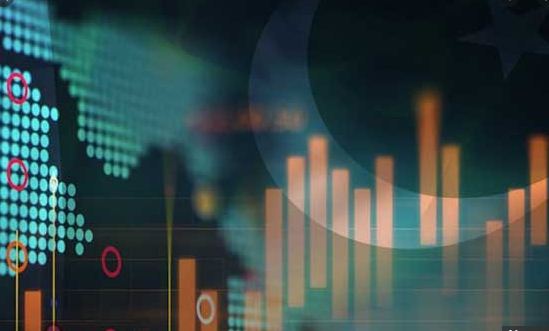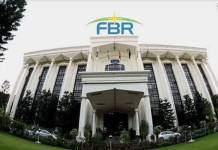ISLAMABAD, JUN 07 (DNA) – In a Coronavirus pandemic situation, which has created difficulties for big economies of the world, Pakistan has succeeded in reviving its economy, which is expected to grow by nearly 4 percent in FY2021, exceeding initial projections, Forbes Magazine reports.
“Even giants like the United States and India have had difficulty dealing with the Coronavirus pandemic. Donald Trump, Dwayne Johnson, and Ellen DeGeneres have all been infected by this virus. In this situation, Pakistan has succeeded in reviving its economy, which is expected to grow by nearly 4% in 2021, exceeding initial projections,” the magazine says.
It says that the services sector, which is forecasted to grow by 4.43% in 2020-2021, is responsible for the majority of the growth. This is certainly remarkable for a country like Pakistan which is becoming successful in expanding its services sector. The agricultural sector’s predicted growth is 2.77%, while that of the industrial sector is 3.57%, it adds.
The report quoted Governor State Bank of Pakistan (SBP), Reza Baqir as having said the unexpected growth in GDP was due to accommodative monetary and fiscal policy.
SBP quickly reduced its policy rate by 625 basis points to 7% and released a stimulus amounting to 5% of GDP. In addition, the governor said that the government was able to control the coronavirus situation reporting 12 new cases per million, compared to 62 new cases per million reported globally.
Pakistan reported the highest traded volumes on the Pakistan Stock Exchange at 1.56 billion shares and 2.21 billion shares respectively on May 26 and May 27. Investors are optimistic because of the populist budget proposal and improved growth forecasts
According to the report, the IMF’s world economic outlook numbers Pakistan’s public debt to GDP remained broadly unchanged in 2020 over the previous year, as reported in Bloomberg. This statistic for most emerging countries increased by 10% during the coronavirus pandemic. Reza Baqir explained that this was caused by a “prudent fiscal and aggressive monetary policy.”
Meanwhile, the country’s recently reported a CPI of 11%, up from 6% a few months ago. The country expects inflation to range between 7% and 9%, with experts predicting that it will be closer to the higher end. The recent high inflation was caused by a small number of products such as energy and food. Because of supply-side factors, Baqir described these factors as “one-time,” but officials are prepared to respond quickly to demand-side pressures if they arise, the reports quotes Raza Baqir.
Baqir further stated that the government was successful in converting a $19 billion current account deficit into a $900 million surplus, as well as more than doubling the country’s foreign reserves from $7.2 billion to $16 billion. These objectives were met not through borrowing, but through “high-quality measures.”
Talking about the measures taken by the government to check Coronavirus, the report says last year, the country saw a surge in cases during the Eid-festival, but the government was quick to move this time, imposing partial lockdowns, closing non-essential enterprises, and prohibiting domestic tourism, which helped the country avoid a spike in cases.
According to the report, the government hopes to have vaccinated 70% of the population by the end of 2021. 5.3 million citizens have been vaccinated so far. With the help of CanSino Bio, a Chinese company, Pakistan has developed its own “PakVac” vaccine, bolstering the country’s vaccination program.
The successful management of the Corona Virus pandemic and the success of the IMF program, as evidenced by the growth in GDP to 4%, demonstrate Pakistan’s ability to grow and serve as a good investment opportunity. = DNA
=======================

















